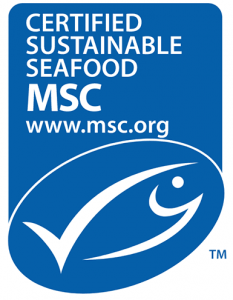Marine Stewardship Council

Refers to wild caught fish. It guarantees some environmental protections, but the somewhat wild west nature of fishing operations mean this label could be used by some shady operations
People
3
Environment
3
Animals
4
Scheme
Verified
What we say
This one is all about wild caught fish, the ASC is the farmed fish version. Depending on the species, wild caught isn’t the greatest for long term sustainability – so bare that in mind when selecting this label.
Individual fishers or vessels cannot be MSC certified, only fishing operations. This means fisheries can go out and fish for both MSC certified and non-certified catch but only on separate trips.
In practice means that these tuna fisheries can fish on free-swimming shoals and receive MSC certification for fish caught that way, but the same vessels and crews, often on the same trip, also fish un-sustainably using Fish Aggregating Devices (FADs) hauling up turtles, sharks and juvenile fish alongside their target catch.
The MSC label was established to be a tool for good in protecting fish stocks and marine ecosystems. Many MSC-certified fisheries do represent best practice, and broadly speaking, it is still advisable for consumers to buy MSC-labelled fish. However, there are certified fisheries that are a long way from sustainability where seriously harmful practices continue.
What they say
The blue MSC label is only applied to wild fish or seafood from fisheries that have been certified as complying to a set of requirements for sustainable fishing.
Fish and seafood with the blue label comes from a fishery that has been independently assessed on its impacts to wild fish populations and the ecosystems they’re part of.
Businesses are audited on an annual basis and subject to unannounced audits, to ensure they are conforming to requirements on traceability, labeling and separation
